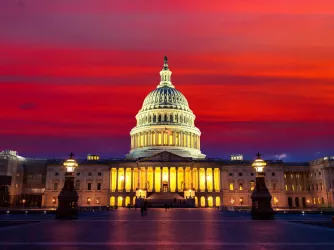Table of Contents
FIRE’s Joe Cohn on the Different Goals and Limits of Title IX and the Criminal Justice System

In response to the suggestion that campus sexual assault allegations be steered towards the criminal justice system, many victims’ rights advocates are maintaining that universities must remain involved in such cases because they perform a function the criminal justice system cannot. FIRE’s Joe Cohn argued in The Washington Post this weekend that the respective goals and limits of universities and law enforcement necessitates that they have “complementary, rather than overlapping, responsibilities,” and that universities are pushing themselves past their capabilities.
Joe aptly notes that too many of those trying to shape the campus judicial system skip over a critically important question that must be asked if action is to be taken against students accused of sexual assault:
Title IX and the criminal justice system do have different goals. The former aims to eliminate discrimination, while the latter aims to punish the guilty and get predators off the streets. But regardless of the ultimate purpose of the inquiry, it always begins with the same question: Are the allegations true? Brodsky, Deutsch, McCaskill and others gloss over the huge difference in the competencies and capabilities of law enforcement professionals and university administrators in making these determinations. Tinkering with campus procedures — by changing the definition of consent or lowering the burden of proof, for example — doesn’t bridge this fundamental divide.
Expecting amateur college panels to consistently make sound judgments about felonies without access to forensic evidence or the ability to subpoena witnesses or get testimony under oath is unreasonable. And when allegations of sexual assault go without proper investigation for months or years, as was allegedly the case at the University of Virginia, it becomes difficult or impossible for anyone to determine the truth. This erodes confidence in the system and leads people on all sides to retreat to prejudice rather than fact.
Still, there are many steps universities can take to respond to allegations of sexual assault regardless of whether the university can prove the allegations sufficiently to fairly punish the accused. Joe writes:
To fulfill their legal and moral obligations under Title IX, colleges should focus on tasks they are competent to perform: conducting preventive education, securing counseling for alleged victims and providing academic and housing accommodations to keep students safe while the wheels of justice turn. Colleges should also quickly connect student complainants to medical resources and law enforcement, and they should provide them with the resources they need to navigate the criminal justice system. Colleges are capable of fulfilling such responsibilities successfully. These accommodations could even be implemented on an interim basis while a criminal case is adjudicated in court, to be removed when appropriate or should an accusation be unsubstantiated.
Read the rest of Joe’s column in The Washington Post.
Recent Articles
FIRE’s award-winning Newsdesk covers the free speech news you need to stay informed.

One day after FIRE lawsuit, Congress passes changes to filming permits in national parks

VICTORY: FIRE lawsuit leads California to halt law penalizing reporters, advocates, and victims who discuss publicly known information about sealed arrest records

O holy fight: New Hampshire Satanic Temple statue threatened by more than vandals
